Wolfram Function Repository
Instant-use add-on functions for the Wolfram Language
Function Repository Resource:
Generate a graph of all expressions in an evaluation chain
ResourceFunction["TraceGraph"][expr] generates a graph of all expressions used in the evaluation of expr. | |
ResourceFunction["TraceGraph"][expr,form] includes only those expressions that match form. | |
ResourceFunction["TraceGraph"][expr,s] includes all evaluations that use transformation rules associated with the symbol s. |
| MatchLocalNames | True | whether to allow x to stand for x$nnn |
| TraceAbove | False | whether to show evaluation chains that contain the chain containing form |
| TraceBackward | False | whether to show expressions preceding form in the evaluation chain |
| TraceDepth | Infinity | how many levels of nested evaluations to include |
| TraceForward | False | whether to show expressions following form in the evaluation chain |
| TraceOff | None | forms within which to switch off tracing |
| TraceOn | _ | forms within which to switch on tracing |
| TraceOriginal | False | whether to look at expressions before their heads and arguments are evaluated |
Trace each step in an evaluation:
| In[1]:= |
| Out[1]= | 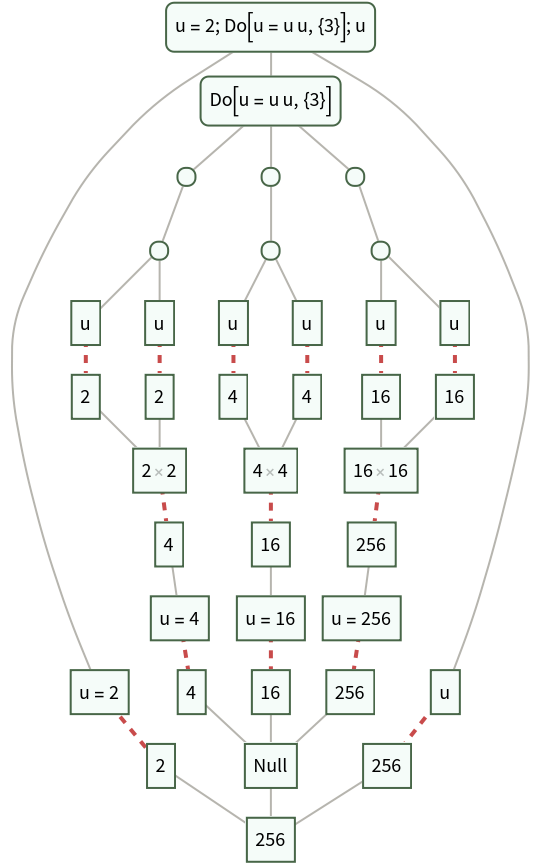 |
Trace only the computations with head Times:
| In[2]:= |
| Out[2]= | 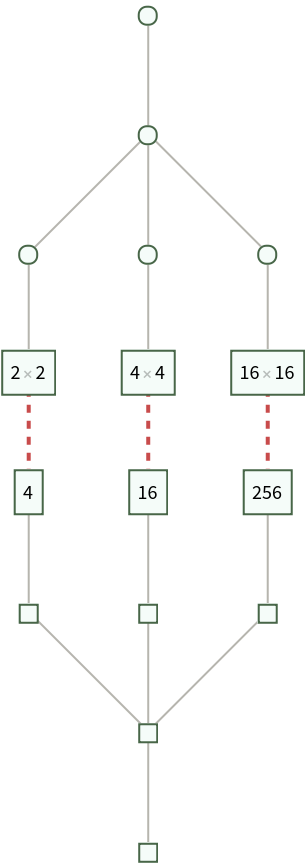 |
Trace an empty evaluation chain:
| In[3]:= |
| Out[3]= |
Trace a single step evaluation:
| In[4]:= |
| Out[4]= | 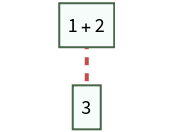 |
Trace each branch in an evaluation:
| In[5]:= |
| Out[5]= | 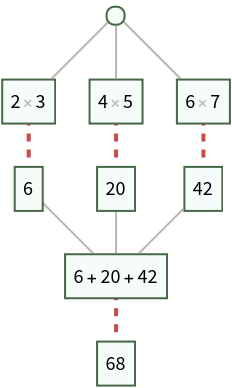 |
Trace evaluations given by definitions:
| In[6]:= |
| In[7]:= |
| Out[7]= |  |
Trace each step in an evaluation:
| In[8]:= |
| Out[8]= | 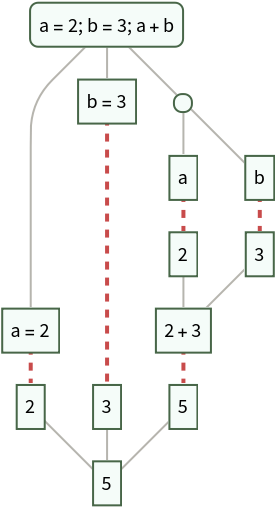 |
Trace the operation of FoldList:
| In[9]:= |
| Out[9]= | 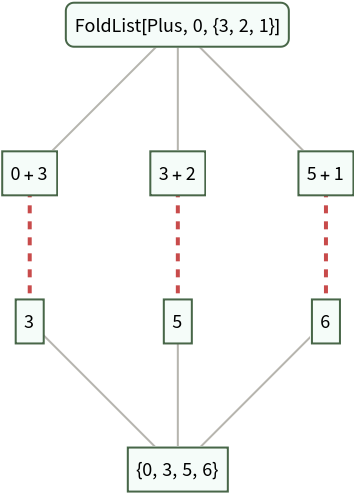 |
Trace the steps in a non-standard evaluation:
| In[10]:= |
| Out[10]= |  |
Trace each step in an evaluation:
| In[11]:= |
| Out[11]= | 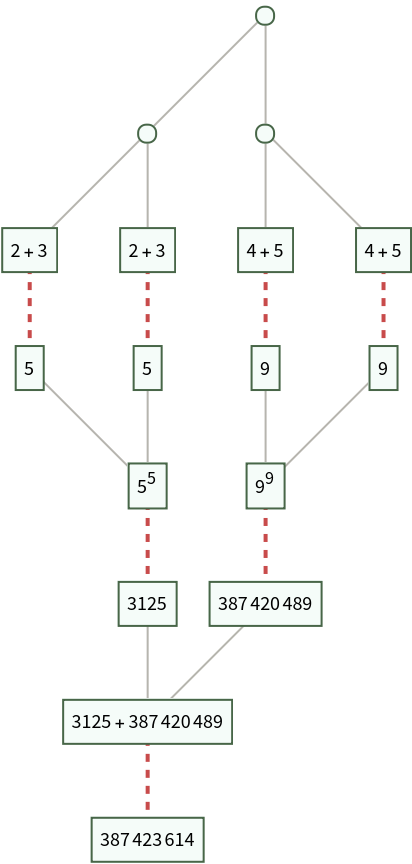 |
Include only those expressions that match _Plus:
| In[12]:= |
| Out[12]= | 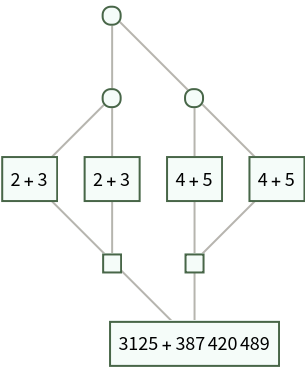 |
Trace the computations with head Plus:
| In[13]:= |
| Out[13]= | 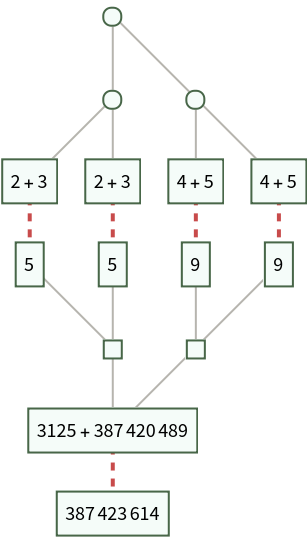 |
Apply a transformation rule to expressions that match a pattern:
| In[14]:= |
| In[15]:= |
| Out[15]= | 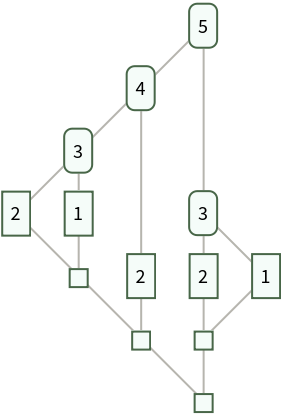 |
Modify the setting for the form argument during the execution of TraceGraph[expr,form] by resetting the value of the global variable $TracePattern:
| In[16]:= |
| Out[16]= | 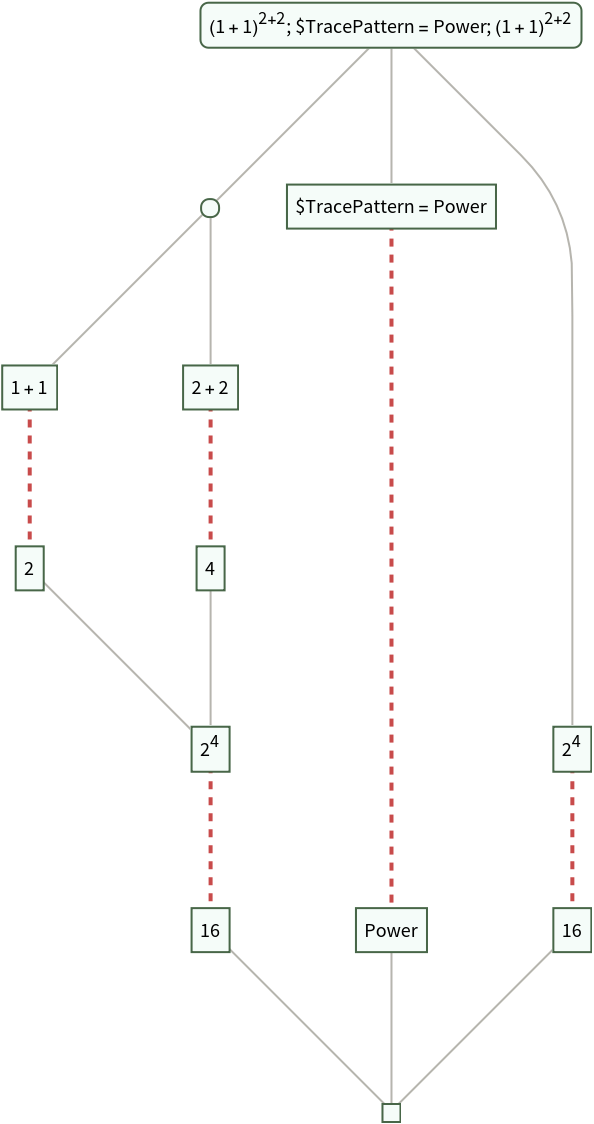 |
By default, symbols such as x match symbols with local names of the form x$nnn:
| In[17]:= |
| In[18]:= |
| Out[18]= | 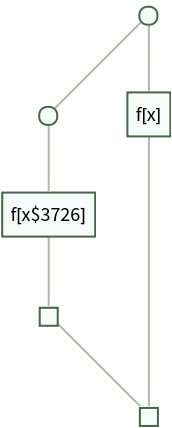 |
With MatchLocalNames->False, only an explicit match of x will show up:
| In[19]:= |
| Out[19]= | 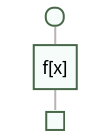 |
A recursive definition for finding Fibonacci numbers:
| In[20]:= |
Show only what sums of fib are encountered:
| In[21]:= |
| Out[21]= | 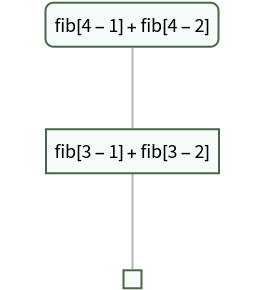 |
Show the beginning of the evaluation chain that leads to each sum of fib:
| In[22]:= |
| Out[22]= | 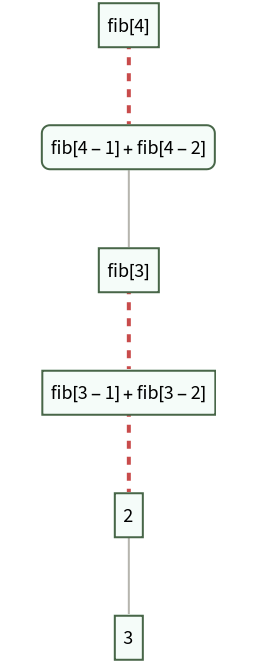 |
Show the entire evaluation chain that leads to each sum of fib:
| In[23]:= |
| Out[23]= |  |
A recursive definition for finding Fibonacci numbers:
| In[24]:= |
Show only what additions of positive integers are required:
| In[25]:= |
| Out[25]= | 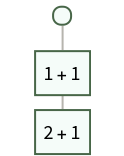 |
Show the beginning of the evaluation chain that leads to each addition:
| In[26]:= |
| Out[26]= | 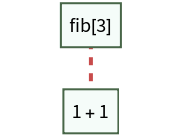 |
Show all intermediate evaluations that led to each addition:
| In[27]:= |
| Out[27]= | 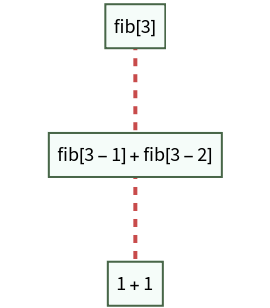 |
A recursive definition for finding Fibonacci numbers:
| In[28]:= |
Trace only evaluations through depth 3:
| In[29]:= |
| Out[29]= | 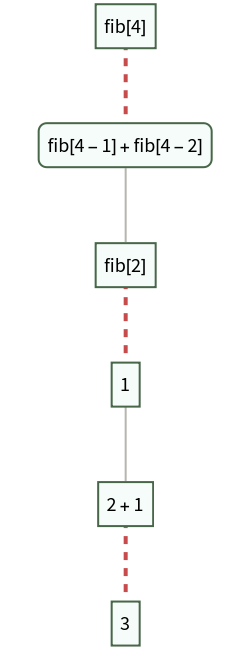 |
Trace all evaluations:
| In[30]:= |
| Out[30]= |  |
A recursive definition for finding Fibonacci numbers:
| In[31]:= |
Show only what evaluations of fib are encountered:
| In[32]:= |
| Out[32]= | 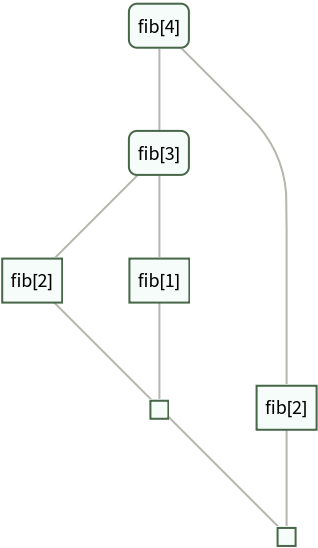 |
Show only the evaluations of fib and the results:
| In[33]:= |
| Out[33]= | 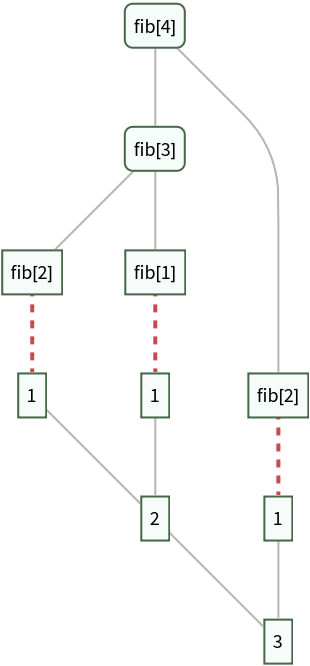 |
Show all intermediate evaluations between calls of fib and the result:
| In[34]:= |
| Out[34]= |  |
Trace evaluation of an expression that evaluates a function g:
| In[35]:= |
| In[36]:= |
| Out[36]= |  |
Omit evaluations required to get the values of g:
| In[37]:= |
| Out[37]= |  |
Trace evaluation of an expression that evaluates a function g:
| In[38]:= |
| In[39]:= |
| Out[39]= |  |
Trace only evaluation inside of g:
| In[40]:= |
| Out[40]= |  |
Trace evaluation of an expression showing evaluation chains for expressions that change:
| In[41]:= |
| Out[41]= | 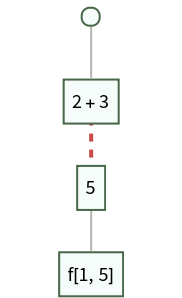 |
Show evaluation chains even for expressions that do not change:
| In[42]:= |
| Out[42]= | 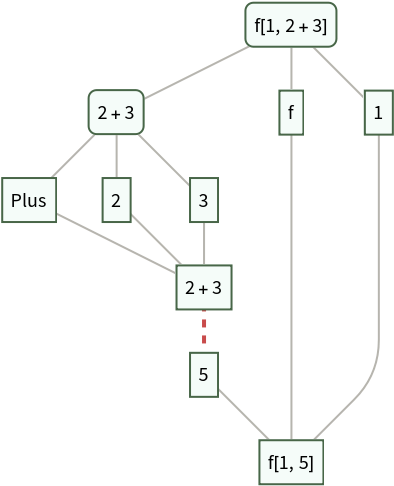 |
TraceGraph[expr] traces each step in the evaluation of expr:
| In[43]:= |
| In[44]:= |
| Out[44]= |  |
TraceGraph[expr,form] includes only those expressions that match form:
| In[45]:= |
| Out[45]= | 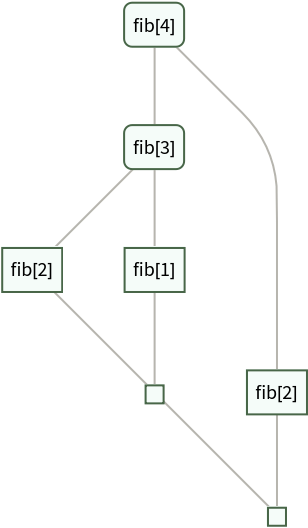 |
This corresponds to deleting all expressions that do not match form, then deleting empty evaluation chains:
| In[46]:= |
| Out[46]= |
| In[47]:= |
| Out[47]= |
| In[48]:= |
| Out[48]= |
| In[49]:= |
| Out[49]= |
All expressions in the graph returned by TraceGraph are wrapped in HoldForm to prevent evaluation:
| In[50]:= |
| Out[50]= | 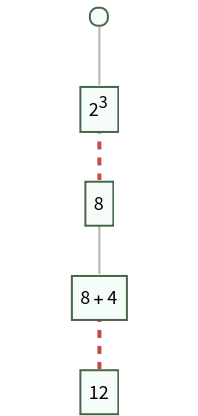 |
This work is licensed under a Creative Commons Attribution 4.0 International License